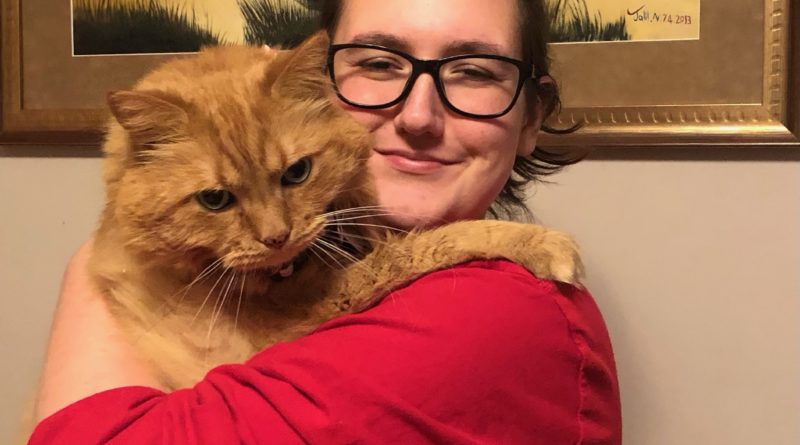Reflections on Senior Year, Fall Semester
The vents in Gibson Hall connect my suitemate’s room to mine, a veritable metal bullhorn through which every sound is amplified ten times over. After some trial-and-error, I learned to muffle any midnight sobbing with two pillows instead of one.
There’s a special hazing in one’s senior year where you really start to wonder where it all went so wrong. When did the little things start avalanching, and when did you stop being able to take a solid, deep breath?
Of course, here’s where I offer the disclaimer that even this account is so personal, so deeply ingrained with the blessings of my birth, upbringing and current status, that to some it will come off as disingenuous; after all, the suffering of one solidly middle-class, white, cis woman working towards a post-secondary degree for which I enjoy an extremely generous scholarship is already leagues of privilege beyond what many of my peers receive on a daily basis.
But, really, that’s not the point.
The point is that I’ve spent the better half of two months listing out who would be available and willing to look after my cat, Finn. There’s extra litter in the back of my car, and a whole new bag of special diet food for him at my home. He’s set for the next few months on Advantix because there was a sale. Declawed in the front and an absolute cuddle monster, he ingratiates himself to everyone he meets, so I’ve little worry on that front.
(I try not to wonder if you can miss things in death. If you can, I know I would miss his little kneading paws on my feet before bed. The forehead kisses when I’m damming back a scream.)
The point is I have gone from as-needed check-ins with the social worker/therapist who’s worked with me for the better part of eight years—ever since I first landed in the hospital for a week with migraines bad enough the doctor’s first thought was cancer—to bi-monthly once more because “we need to get you back on the right track.”
(I’ve taken a sledgehammer to the track, pried the bars off and tossed them blindly while friends and family waited patiently on the sidelines. They’re still waiting, watching me dig up the hard-packed ground I’ve railroaded into nongrowing.)
The point is that every one of my peers has the same platitudes, the same tired eye bags, the same hunched shoulders and jittery hands from too much Monster or coffee or Five-Hours.
(The U.S. Food and Drug Administration recommends the average adult consume no more than 400 milligrams of caffeine per day. Two 16-ounce cans of Monster put you at 320 milligrams, and I’ve watched more than a few friends put three or more down at a time. Paper’s not going to write itself.)
Fellow journalist for the Highland Echo, Sophie Turner, wrote an article, “Fighting Burn-Out Blues as a Junior” which assures me that the problem is not so restrictive to class.
An article in the New York Times titled “Covid Depression is Real. Here’s What You Need To Know,” reinforces mine and Turner’s anecdotes; on a global scale, the post-pandemic population is more highly diagnosed with anxiety and depression; there is evidence linking COVID-19 infections with later diagnoses of mental health illnesses, and those who were diagnosed prior to a COVID-19 infection are suffering worse, more pronounced side effects.
Something has gone terribly wrong along the way, but would it be worth it to stop and fix it?
It’s all too easy to take the worst of the world in tight, a rotten beast curled beneath your chest dragging your feet, shoulders and heart down. Down is curled up under covers while the work piles up, and the trash starts to stink.
It’s forgetting to take your medications because surely it can’t get any worse, and, if it does, don’t you deserve it for letting everything spiral out of control? Maybe this time a little more suffering will kick you into gear, remind you how much better your worst is than another’s best.
It doesn’t. It never does.
“Fixing” this is multifaceted; it’s systemic change enacted by smarter, more powerful people than I. It’s cognizant of the many biases baked into every culture which help one group at the harm of another. It’s activism and support and genuine, honest-to-God effort.
But that’s larger than I can manage right now.
For now, I’ll start by brushing Finn out to keep out the matts. I will focus on his sweet, half-lidded eyes and thank all my blessings that I have him around, even when he wakes me up at four a.m. for food.
My therapist suggested journaling, and as cliche as it sounds, I’ll take ten minutes before bed to write down everything I can think of. Things I’m grateful for go at the top; how I think I’m doing day-to-day makes an appearance somewhere midway down the page. Sometimes, I’ll leave a little doodle.
I’ll drink water from the 64-oz. bottle I’m keeping on my desk. I’ll turn on the fairy lights and open the blinds, wasteful though it seems, and I’ll go out for a walk when it’s not biting cold.
I’ll forget to do one of these, maybe all of them, some days. It’s okay though.
I still have my two pillows, but maybe I’ll only need one.


Beautifully written, Rebecca.
Beautifully written, Rebecca. Stay the course.